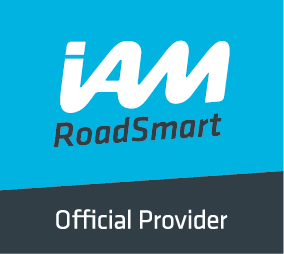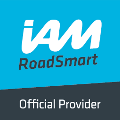No hard shoulder to cry on
All lane running motorways use technology to actively manage the flow of traffic. Driving on them can sometimes be tricky, particularly if you are not a regular user. They use technology to actively manage the flow of traffic and don’t work effectively if motorway users do not use them as they’re supposed to. This week’s tips give advice on how to stay safe on all lane running motorways, from IAM RoadSmart’s head of driving and riding standards Richard Gladman.
- Never enter a motorway if you are short of fuel or have any concerns about your car’s fitness to cope with high-speed driving. Most breakdowns are totally avoidable and getting help on a motorway is more difficult, more expensive and much more dangerous
- If a warning light comes on or the car feels strange leave at the next slip road, head for the nearest service area or stop in an emergency refuge.If you have a puncture try to keep going until you reach a safe spot
- In a refuge use the emergency phone to alert operators to your problem and to summon help. Don’t rely on your mobile phone as you may not have signal and by using the provided phone emergency services will be able to pin-point you exactly. Listen carefully to instructions on when to leave a refuge area when you’re ready to continue your journey.The control centre may set the signs behind you to alert traffic you are coming out
- If you do breakdown in the inside lane between refuges consider leaving the vehicle on the passenger side and take refuge behind the barrier. Put your hazard lights on so traffic can move around you
- If you are in a middle running lane, stay in the car and keep your seatbelt on. CCTV cameras and sensors should alert the control centre to your predicament and help will be on its way.Variable message signs will also alert other drivers to a blocked lane ahead, but if you feel unsafe call 999.Never cross the other carriageway or let passengers or pets out in a running lane
Richard said: “You need to be alert on an all lane running motorway but the technology is in place to make them as safe and reliable as possible. With more and more being installed it is well worth taking the time to get used to their unique signs and markings.”
Notes to editors:
- Richard Gladman is IAM RoadSmart’s head of driving and riding standards.
- IAM RoadSmart has a mission to make better drivers and riders in order to improve road safety, inspire confidence and make driving and riding enjoyable. It does this through a range of courses for all road users, from online assessments through to the advanced driving and riding tests. IAM RoadSmart is the trading name of all businesses operated by the UK’s largest road safety charity, the Institute of Advanced Motorists (IAM) and was formed in April 2016 combining the IAM, IAM Drive & Survive, PDS and IAM Driver Retraining Academy. The organisation has 92,000 members and campaigns on road safety on their behalf. At any one time there are over 7,000 drivers and riders actively engaged with IAM RoadSmart’s courses, from members of the public to company drivers, while our Driver Retraining Academy has helped 2,500 drivers to shorten their bans through education and support programmes.
To find out more about IAM RoadSmart products and services visit the new website www.iamroadsmart.com
To find out the name of your own local IAM RoadSmart group please visit: https://wwwiamroadsmart.com/local-groups
Media contacts:
Further information from:
IAM RoadSmart press office – 020 8996 9777
[email protected] / www.iamroadsmart.com
ISDN broadcast lines available
Follow us:
On Facebook: www.facebook.com/IAMRoadSmart
On Twitter: @IAMRoadSmart

